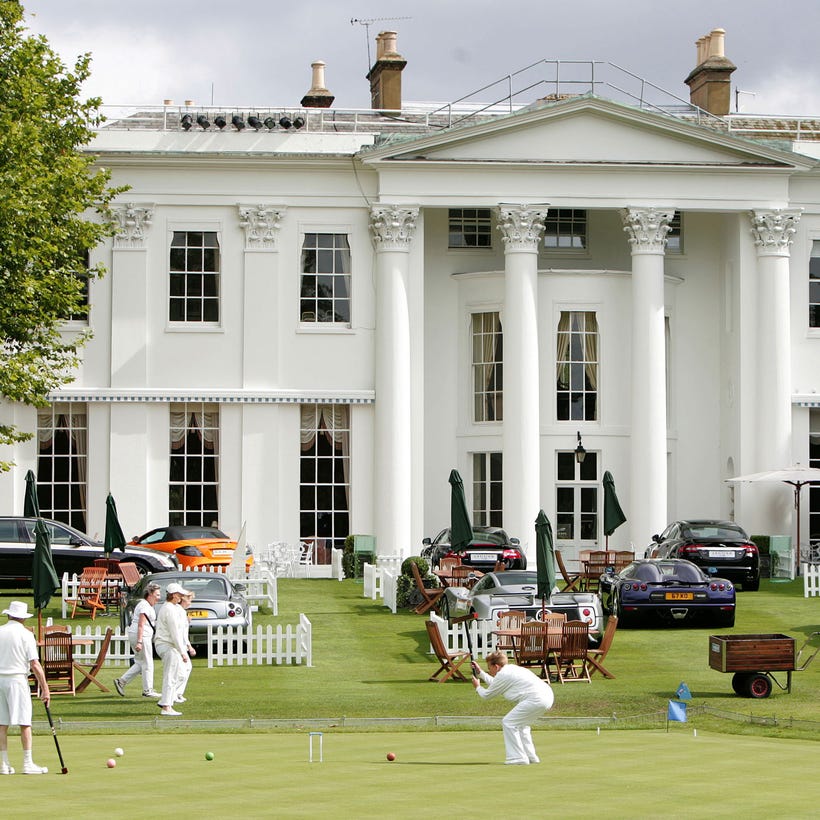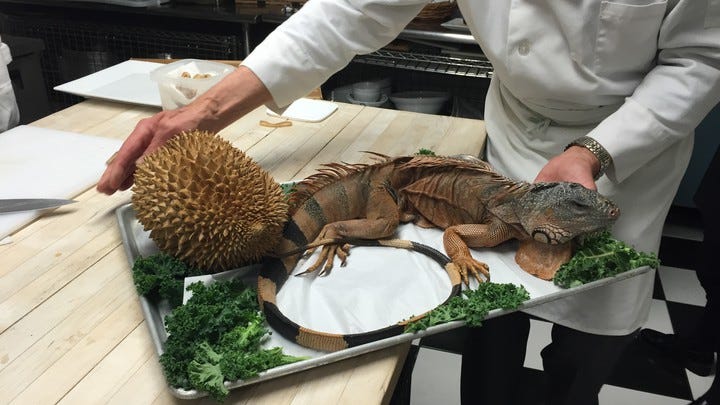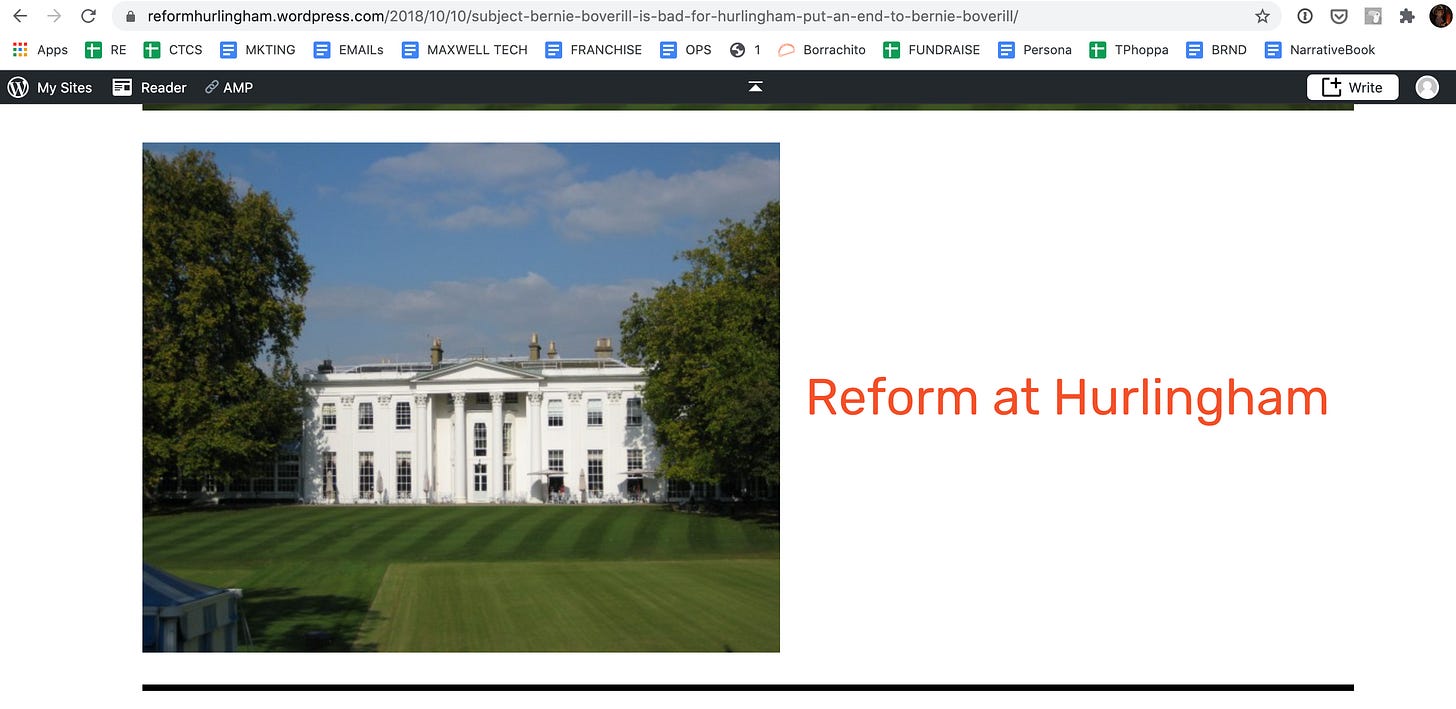The Hurlingham Club, Overboard Ownership & Everything to Everyone (Cafe Society Quick Bite #2)
Explorers Club, Identity Crises & Toxic Ownership
Cafe Society is Maxwell Social’s weekly magazine on the intersection of community and society — an anthropological look at the underpinnings of what makes the world tick, written by David Litwak (@dlitwak) and the Maxwell team.
Graydon Carter’s new publication, Air Mail, published a great writeup of the drama going on at the Hurlingham Club, Kate Middleton’s favorite place to play tennis, a West London enclave so exclusive there isn’t even a waitlist anymore.
Club members can’t seem to agree on what exactly the Hurlingham Club should be - a place to play, to drink, for older people or younger people — and as a consequence they seem to be doing none of it well, and it has all spilled into public via a blog called Reform Hurlingham, where a person or group of people who post under the name ‘Bernie Boverill’ trash the changes on a regular basis.
It reminded me that there is such a thing as feeling TOO much ownership, having your identity too wrapped up in a spot and the toxic behavior that can inspire as it related to my own experience at the only traditional club institution I am a member at, The Explorers Club.
In its worst form, toxic ownership causes paralysis, as people feel a bit too strongly about small changes, but it’s a good reminder that it’s important for clubs, and brands in general, to not be too many things to too many people, a pattern most of the private clubs these days fall into.
A couple years ago I joined the Explorers Club on the Upper East Side.
The club doesn’t do a great job of regular social programming outside of its lecture series, so my involvement usually entailed bringing 10 friends over on a Friday night to drink in what is still a pretty cool mansion, and attending the legendary yearly gala where you can eat Iguana and run into Buzz Aldrin.
But this last April I received an email detailing the “drama” that had been going on behind the scenes — apparently the Club had accepted a lot of money from the Discovery Channel to fund some grants and renovations, and while the vast, vast majority of the club didn’t care (me included), apparently a small dedicated set was making a stink about it. The letter concluded with:
“While we are making great progress, there are still several members that are feeding negativity and trying to undermine the Board’s efforts. We are taking appropriate action to protect the Club, and also to minimize the baseless complaints and lawsuits of the disgruntled few.”
Lawsuits?! That stunned me, that someone had the gall to sue the club when it seemed like a savvy move to shore up the finances during a pandemic and the Discovery Channel wasn’t asking for anything ridiculous at all, but it reminded me of one of my first experiences bringing friends over on a Friday night — when I was giving a tour to one friend, an older member lied about the rules and kicked out my other friends because she didn’t know them. When I complained how rude that was, someone apologized and simply said “you have to understand, some people’s entire identity is wrapped up in this club.”
I rolled my eyes, but I now recognize that any successful institution will inevitably encounter a poisonous form of “ownership,” that if left unchecked can plant the seeds of destruction as old members become unwelcoming of new members and all forms of change are rejected.
The Hurlingham Club saga is very entertaining and I strongly suggest you read the Air Mail article, but in short, much of the drama centers around a 30M USD expansion to the west wing of the club. Some members think the design looks like Terminal 5 of Heathrow, others think they have a perfectly good pool already, so why is this necessary, etc.. The people who disagree have taken to a Wordpress blog called Reform Hurlingham.
According to its critics . . .
‘Bernie Boverill’ (most likely a group of individuals) would have you believe ‘he’ is working for a good cause – to reform Hurlingham. Do not believe it. When the Bernie Boverill cronies tell you how to vote, they are not seeking reform. They are asking you to vote in support of a cosy gang who have spent most of the last decade undermining the democratic processes of our Club and attacking the Committee.
I couldn’t help but think of my Explorers Club experience . . .
But I think there is a much deeper reason why the Hurlingham Club is infighting — they don’t know what they want to be and who they are catering to anymore.
The rancor was finally laid bare when an internal survey asked members what they liked least about the place. “Food and Beverage” came in first. But the category “Other Members” ran in second. The report cited “some evidence of a generational divide,” with the younger set “feeling uncomfortable with the attitude of older members.” One insider describes a club in the throes of an identity crisis. “The problem is the Hurlingham doesn’t know what it is anymore. It’s a social club, a children’s club, a sports club, and a de facto nursing home all at once,” he said. “And that’s a very tricky act to pull off.”
Some of the earliest advice I got building Maxwell was from a friend who owned several bars in London. He told me that when they launched they had tried to be the day party spot, the late night cocktail spot, the dinner party spot and the after work happy hour spot, and they ended up not being known for any one thing, and business floundered.
I believe this is partly what dooms most private membership clubs in this day and age — Soho House is trying to be part coworking space, part restaurant, part business power meeting location, part nightlife bar, part day party pool spot, part spa & gym all in one location. But at least Soho House has a specific type of person in mind, a “creative” 27-45 year old urban jet-setter.
Old institutions (the Explorers Club has been around since 1904 and the Hurlingham Club probably a lot longer) often get stuck in an in-between phase, seeking to diversify on the age front to survive, exploring new ideas of what the club might mean to a new member and trying to pioneer a new modern identity, but encountering resistance from the old guard who insist on not losing what the club meant to them.
I remember when I asked about why there weren’t more specific events for young people at the Explorers Club, a high up member told me that they had faced a lot of resistance to subdividing the club in anyway based on age because the older members still felt “young at heart.”
Clubs, brands & more that refuse to sideline their intransigent old guard and embrace a search for a new identity will fade into irrelevance.
If you enjoyed our newsletter forward to a friend and follow us on Instagram
And Twitter:
And check out some of our deeper dinner discussions like why Soho House has had trouble scaling its community (and why we think miniclubs are the future), Possibility-As-A-Product: Superbad, Clubhouse & the Inciting Incident, Gatekeepers & The Wing, Inclusive Exclusivity, Sofar Sounds & Self-Cancelling Greek Life, Ford Bronco, Blockbuster & Nostalgia Porn For A Simpler World and Amsterdam’s Radical Anarchist White Bikes & Community Hobbyists.
Have a great rest of the week!
David (@dlitwak) & The Maxwell Team








